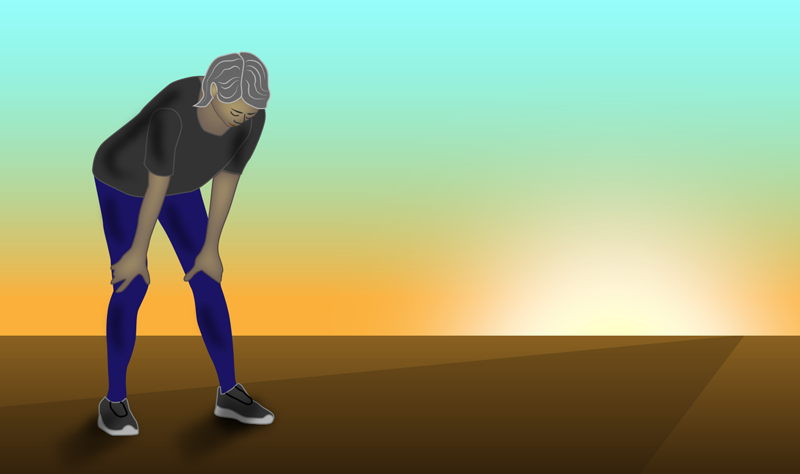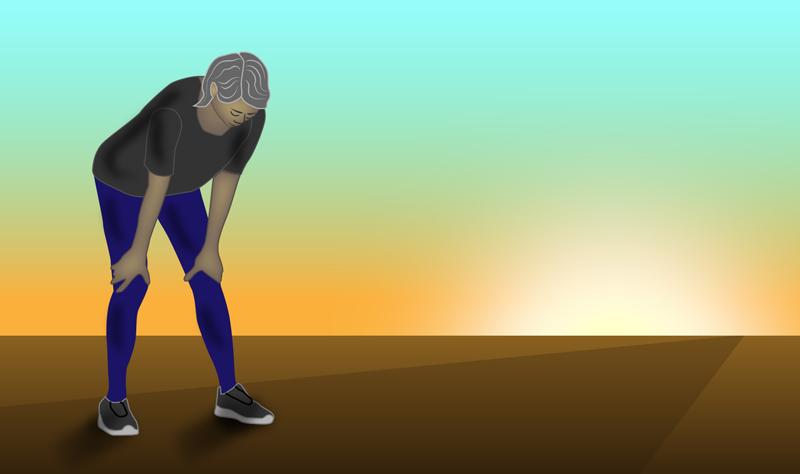What It Takes to Move the Needle
It has been a few years since the Diary of Sarah Jane appeared in APS News. Sarah Jane is a composite character created from the real stories provided anonymously by the APS Division of Nuclear Physics (DNP) community. She was then a graduate student attending a DNP fall meeting, where she was struggling to navigate her many exchanges. Recently someone asked me: “How do you think Sarah Jane would feel if she attended a DNP meeting now?”
Many things have changed in the last six years. Sarah Jane would likely now be an early-career postdoc. Maybe she would be pleasantly surprised to see the APS Code of Conduct displayed front and center by the registration desk. She surely would be impressed to hear about the DNP Allies, recognizable by their orange scarves, at the start of the plenary session. She might even feel supported in talking with some Allies while trying to make sense of her previous experiences. And I imagine she would recognize the cordial and respectful discussions in the parallel sessions. She might also notice the increased expectations of students attending the conference.
No doubt the DNP has made progress. At every DNP fall meeting, Allies get trained to intervene in situations where people do not feel welcome. Training is also provided to the chairs of all DNP sessions so they can ensure a positive atmosphere that does not tolerate bullying. The raised awareness among the members has produced a sort of phase transition in the social system. Isn’t this an excellent example of how community expectations can hinder outrageous harassment or overt offensive behavior? At first sight you might think all is fixed. Let’s now get on with physics! But don’t be fooled. A participant of the DNP fall meeting does not see the invisible and consuming work, full of setbacks and surprising obstacles, that takes place behind the scenes. Progress does not sustain itself. It can be lost in a wink.
The pioneering efforts of the DNP have generated interest in a much broader community. Within the APS, the Division of Plasma Physics has already introduced its own Allies program and the Division of Atomic, Molecular, and Optical Physics is studying the possibility of following suit. The APS leadership wants to expand the Allies program to the APS March and April meetings. Physics conference organizers around the globe, as well as leaders of the US Department of Energy, are also inquiring whether training can be provided to create their own Allies. The demand has ballooned!
Ironically, if you sit in the same spaces where I often sit, you’ll realize many senior physicists think things have gone too far. They have come to tolerate Allies and other initiatives that promote diversity, equity, inclusion, and belonging (DEIB), yet they question the efforts’ necessity and comment on how it is a major distraction from what we should all be focusing on—the science! I know that everyone doesn’t have to get onboard. Some things will not change.
The truth is that the elephant in the room keeps getting bigger: Who is going to do all the work? It is well known that the burden of DEIB work in our communities typically falls on the shoulders of a small set of champions. It used to be that service leadership was highly regarded by the academy. It represented power. These days its value has diminished to the point that scientists loathe it. Interestingly and not uncoincidentally, this difference in perception is accompanied by a significant increase of women filling service roles. Most of the DEIB champions are women. They not only have a deep understanding of the challenges of minoritized communities from their lived experiences, but they also care enough that they are willing to sacrifice promoting their own research for the benefit of creating a better community for all.
These champions are still judged for their science excellence and productivity—the same standards as those applied to the people who choose not to work toward equity. But everyone benefits from the reward of a more welcoming environment: an expanded workforce. Many members praise DEIB work but sit on the sidelines, focusing on their physics research. I don’t know how the encouraging acclaim can solve the problem: that this small set of champions is sweating away, running a never-ending long-distance race, attempting to juggle all the service work with the rest of their lives. What I know is that these champions are not going to be able to run forever.





